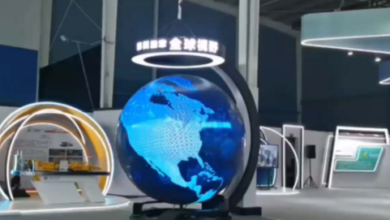Heat Pump Technology: Innovations Shaping the HVAC Industry

The HVAC industry is undergoing a remarkable transformation, with heat pumps emerging as a frontrunner in energy-efficient and environmentally friendly heating and cooling solutions. Over the years, advancements in heat pump technology have not only improved performance but also broadened their applicability across various climates and building types.
This article explores the latest innovations in heat pump technology, their impact on the HVAC industry, and how these advancements are paving the way for a sustainable future.
The Evolution of Heat Pump Technology
Heat pumps have been around for decades, but recent technological breakthroughs have made them more efficient, versatile, and reliable than ever before. Unlike traditional systems that generate heat or cold through combustion or electrical resistance, heat pumps transfer thermal energy, making them a more sustainable option.
Key Advancements Over the Years
- Cold-Climate Adaptation: Modern air source heat pumps can operate efficiently in temperatures as low as -25°C, thanks to enhanced compressors and refrigerants.
- Variable-Speed Compressors: These allow heat pumps to adjust output based on the exact heating or cooling needs, improving energy efficiency and reducing wear and tear.
- Smart Integration: Heat pumps now pair seamlessly with smart thermostats and home automation systems, offering precision control and energy optimization.
See also: Jason Eichenholz Net Worth: A Look at the Technology Entrepreneur’s Wealth
Innovations Redefining Heat Pump Performance
Recent advancements in heat pump technology are setting new benchmarks for efficiency, usability, and environmental sustainability.
1. Inverter Technology
Inverter-driven heat pumps continuously regulate the speed of the compressor, ensuring the system operates only as needed. This eliminates the frequent on/off cycling of traditional systems, leading to:
- Lower Energy Consumption: Reduced energy waste during operation.
- Enhanced Comfort: Consistent indoor temperatures without noticeable fluctuations.
- Longer Lifespan: Less strain on components due to smoother operation.
2. Dual-Source Systems
Dual-source heat pumps combine the strengths of air and ground source systems. By drawing heat from the air or ground depending on conditions, these systems optimize efficiency year-round.
3. Eco-Friendly Refrigerants
Refrigerants with low global warming potential (GWP), such as R-32, are replacing older, environmentally harmful options. These advancements minimize the ecological footprint of heat pumps while maintaining high performance.
Heat Pumps and Renewable Energy Integration
As the world moves toward sustainable energy solutions, heat pumps are playing a crucial role in this transition by integrating seamlessly with renewable energy sources.
Solar-Powered Heat Pumps
Pairing heat pumps with solar panels allows homeowners to generate clean electricity for their systems, reducing reliance on the grid and lowering energy costs.
Smart Grids and Load Balancing
Heat pumps can now communicate with smart grids, adjusting their operation based on energy demand and availability. This ensures efficient energy use while supporting grid stability.
Heat Pumps in Different Applications
Advancements in heat pump technology have expanded their use beyond residential homes, making them suitable for various applications:
1. Commercial Buildings
High-capacity heat pumps are now being used in office buildings, hotels, and industrial spaces. These systems provide efficient temperature control for large areas while lowering operating costs.
2. District Heating and Cooling
Heat pumps are becoming a key component in district energy systems, where a centralized unit supplies heating and cooling to multiple buildings. This approach reduces energy waste and promotes community-wide efficiency.
3. Retrofitting Older Homes
Modern ductless heat pumps are ideal for retrofitting older homes that lack existing ductwork. Their compact design and zoning capabilities make installation straightforward and cost-effective.
The Environmental Impact of Heat Pump Innovations
Heat pumps are transforming the HVAC industry by offering solutions that align with global efforts to combat climate change.
Reduced Greenhouse Gas Emissions
Unlike gas furnaces or oil-based systems, heat pumps produce no direct emissions. When powered by renewable energy, they become a net-zero solution for heating and cooling.
Enhanced Efficiency
The energy efficiency of heat pumps reduces overall energy consumption, easing the demand on power grids and lowering fossil fuel dependency.
Sustainable Manufacturing
Manufacturers are adopting eco-friendly practices, using recyclable materials and optimizing production processes to reduce the carbon footprint of heat pump systems.
Barriers to Adoption and How Innovations Address Them
Despite their advantages, heat pumps face some challenges that have historically limited their adoption. However, ongoing innovations are addressing these barriers.
1. Cold Weather Performance
Older models struggled in extreme cold, but modern advancements like enhanced vapor injection technology allow heat pumps to operate efficiently in sub-zero conditions.
2. Initial Installation Costs
While heat pumps can be more expensive upfront, rebates, tax credits, and government incentives are helping to offset costs. Additionally, long-term energy savings make them a cost-effective choice over time.
3. Awareness and Education
Many homeowners are unfamiliar with the benefits of heat pumps. Companies like Foundry Heat Pumps play a vital role in educating consumers about the technology and guiding them toward the right systems for their needs.
The Role of Foundry Heat Pumps in Driving Innovation
Foundry Heat Pumps is at the forefront of bringing advanced heat pump solutions to homes and businesses. Their commitment to innovation ensures customers receive systems that deliver maximum performance and efficiency.
Tailored Recommendations
Foundry Heat Pumps works closely with customers to assess their specific heating and cooling needs, recommending systems that align with their climate, home layout, and energy goals.
Professional Installation
Proper installation is essential for optimal heat pump performance. Foundry Heat Pumps’ skilled technicians ensure seamless integration, allowing customers to enjoy the full benefits of modern technology.
Future Trends in Heat Pump Technology
The future of heat pump technology is bright, with exciting developments on the horizon:
AI and Machine Learning
Artificial intelligence will enable heat pumps to learn from user behavior, weather patterns, and energy use, automatically optimizing performance for maximum efficiency.
Ultra-Compact Designs
As urban living becomes more prevalent, manufacturers are developing smaller, more versatile heat pump systems that fit seamlessly into compact spaces.
Enhanced Zoning Capabilities
Future heat pumps will offer even more precise control over temperature and humidity levels in individual rooms, improving comfort and reducing energy waste.
Hydrogen-Powered Systems
Exploration into hydrogen as an alternative energy source may lead to heat pumps that run on hydrogen, offering a new avenue for clean energy heating.
Conclusion
The HVAC industry is undergoing a paradigm shift, with heat pump technology leading the charge toward energy efficiency and sustainability. From innovations in cold-climate performance to seamless integration with renewable energy, heat pumps are setting new standards for heating and cooling systems.
Foundry Heat Pumps continues to champion these advancements, helping homeowners and businesses adopt cutting-edge solutions tailored to their needs. As heat pump technology evolves, it’s clear that the future of the HVAC industry is electric, efficient, and eco-friendly.




